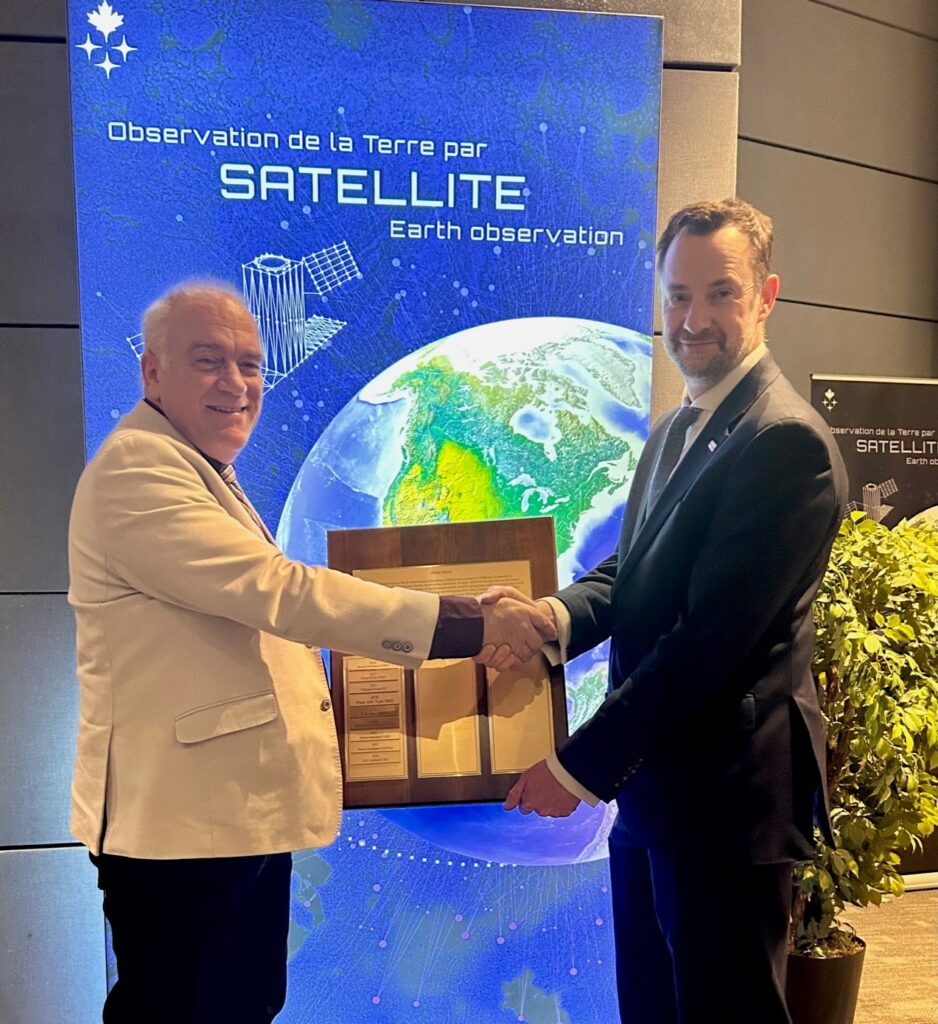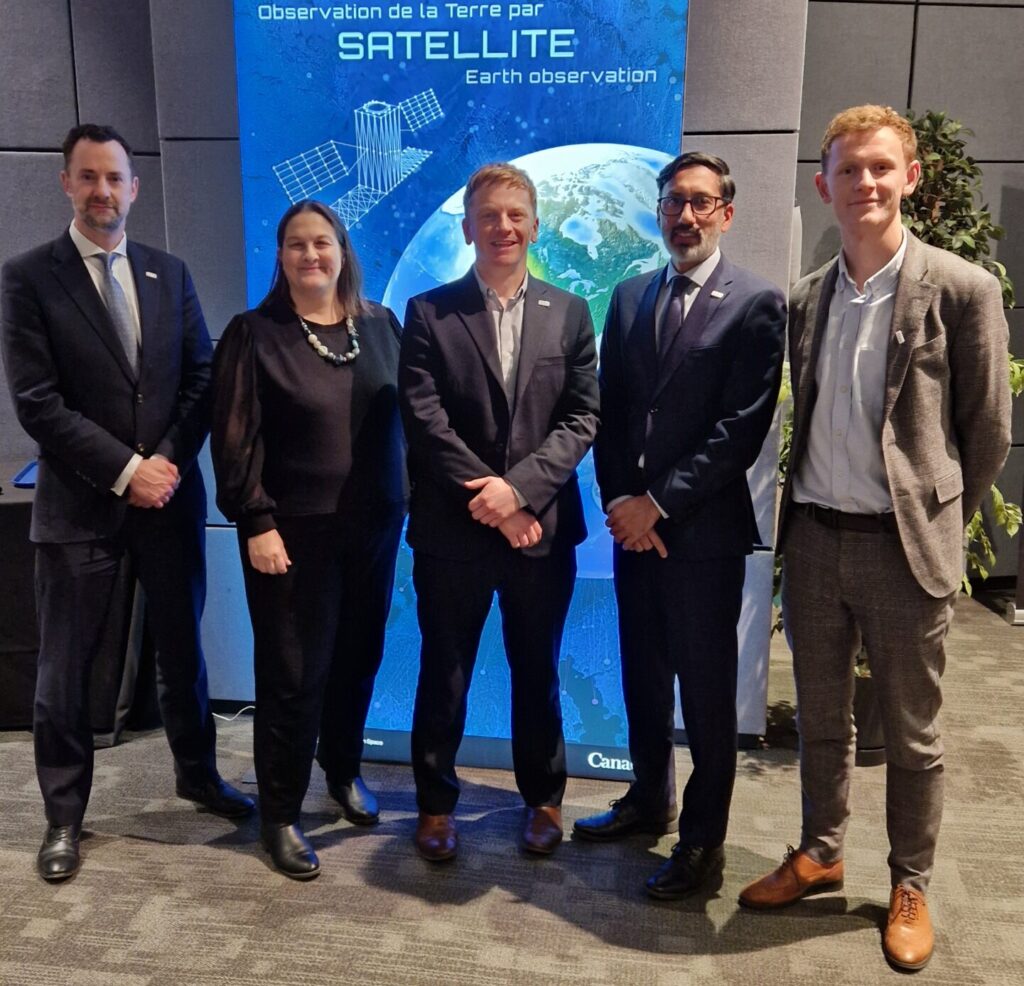Following the leadership of the Canadian Space Agency, the UK Space Agency (UKSA) has assumed the role of Chair of the Committee on Earth Observation Satellites (CEOS) for 2025.

The UK last chaired CEOS in 2005, and whilst the world of Earth observation (EO) has changed dramatically since then, the need for CEOS – now into in its 41st year – is as great as ever.
With the establishment of largescale publicly funded multilateral monitoring programmes such as Copernicus, and the emergence of an ever-growing commercial EO sector focusing on bespoke needs, there are vast collections of global satellite EO data that are rapidly growing. Unlocking the potential of such data to transform public services, deliver societal value and grow the economy is now a common priority across CEOS agencies. There are many examples of CEOS Agency efforts to boost economic, societal and environmental development through the application of satellite EO.
The UK Space Agency will use its year as CEOS Chair to explore strategies to maximise the uptake of satellite EO data under the headline theme of ‘Unlocking EO for Society’. There are four areas of activity proposed under this theme:
Unlocking EO for the UNFCCC Global Stocktakes (GST):
Understanding how EO can be used to its maximum in the next Global Stocktake is a headline priority for the JAXA SIT Chair team. They are working with WG Climate on a GST Lessons Learned Study to identify where there were barriers or missed opportunities in GST1. The UK Space Agency will encourage sustained action on the recommendations of this study, ensuring there is opportunity to discuss and identify clear actions for the next GST through discussions at CEOS SIT-41, and through a planned joint discussion item with JAXA SIT Chair at ESA’s Living Planet Symposium.
Unlocking EO for the Global Methane Pledge:
The CEOS Greenhouse Gas Task Team (GHG TT) is preparing best practices for space-based facility-scale methane measurements, co-led by the UK’s National Physical Laboratory and NASA JPL. The UK Space agency will look to raise global awareness of this work and stimulate the uptake of these best practices, by supporting join-up with policy colleagues to push for these best practices to be recognised and used by the international community for initiatives such as the Global Methane pledge.
CEOS in Schools and Youth Summit:
The UK Space Agency recognises that, if exposed to the benefits of EO, the next generation can further drive uptake of the technology for services and applications. By piloting a CEOS mechanism to inspire global youth collaboration, the CEOS Chair will demonstrate to students how satellite EO can be used for the benefit of society. Across a programme of bespoke classroom-based learning, two international workshops and a poster project, students will learn about EO applications for built and natural environments. The programme will conclude with the first CEOS Youth summit ahead of Plenary, where students will have the opportunity to discuss their work with CEOS Principals and experts.
Unlocking EO for Public Service:
Finally, in 2025 the UK Space Agency will promote discussion and knowledge exchange between CEOS Agencies on their national strategies to boost the uptake of EO data and products to transform public services. This will include a dedicated side-meeting at CEOS SIT technical workshop in late summer, and a short paper presenting findings for CEOS Principal awareness at CEOS Plenary 2025.
 2025 CEOS Chair Team at the 2024 CEOS Plenary in Montreal.
2025 CEOS Chair Team at the 2024 CEOS Plenary in Montreal.
It is hoped that these of activities will complement and provide a platform for the fantastic work already taking place across the CEOS community to drive even greater impact and Unlock EO for Society.
UK Space Agency 2025 CEOS Chair team






